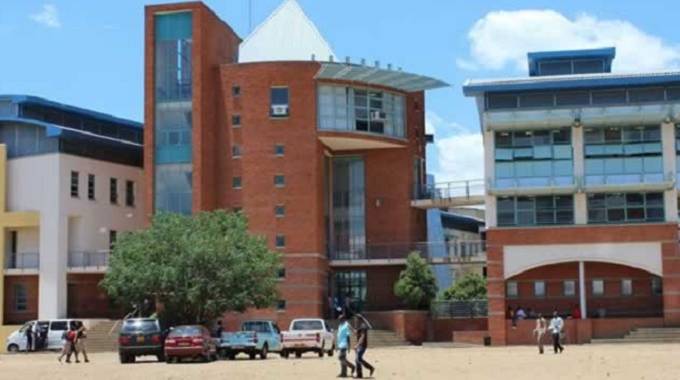
The Sunday News

IN an article to the World Economic Forum, Farnam Jahanian, president of the Carnegie Mellon University in the United States, stressed that as the world embraces the technology driven economy, universities must change, too, at a pace unfamiliar to higher education.
“While we retain our core mission of educating the next generation and cultivating new forms of knowledge, universities must also embrace our ever-expanding role in driving innovation and catalysing economic development. Our institutions must meet the challenges of the digital revolution head-on, and play an increasingly important role in our innovation ecosystems and economies.”
What he was emphasising is that the digital revolution is here to stay and it is accelerating every day. His statement was also driving the point home that tertiary institutions have a big role to play in economic transformation through championing innovation.
Apart from offering programmes that encourage value addition, entrepreneurship and innovation, tertiary institutions have a mammoth task of producing graduates who are ready to hit the ground running by coming up with their own income-generating projects, and not to become mere jobseekers.
It has become the norm that universities the world over have been challenged to be innovative and contribute to economic development, and locally, the Government has gone a step further by funding the setting up to Innovation Hubs in State universities. What universities are doing is expected to transform the whole value chain across board.
Last weekend, President Mnangagwa launched the Dryland Agro Innovation and Industrialisation Park, with the facility — housed at Lupane State University (LSU) — set to spur innovation in semi-arid agriculture, wildlife management, forestry and rural development while also propping knowledge and technology- driven industries for the benefit of communities in Matabeleland North province.
LSU is one of the beneficiaries of the Government’s $7,2 billion funding for local universities’ innovation hubs and infrastructural development. It is mandated to conduct research on the Dryland Agro-Innovation and Industrialisation Programme with the aim of solving agriculture-related challenges in arid regions of Matabeleland and other parts of the country.

LSU
The park is expected to industrialise agriculture in the province and is already producing various breeds of pigs, goats and chickens at mass scale.
Speaking during the launch of the Agro-Innovation Park, President Mnangagwa commended LSU for prioritising education centred on science, technology and innovation, which dovetailed with the principles of the Second Republic.
“I want to commend Lupane State University for situating itself within the broader development agenda of my Government. We continue giving priority to an education system driven by science, technology and innovation.
This Dryland Agro-Innovation Hub and Industrial Park will undoubtedly enhance your mandate of boosting semi-arid agriculture, wildlife management, forestry and rural development, among other aspects. The facility should also spur knowledge and technology driven industries for the benefit of local communities and growth of the provincial economy here in Matabeleland. To this end, the Dryland Agro-innovation and Industrial Park must capacitate our small-holder and communal farmers with the relevant skills and agronomic knowledge.
Our rich indigenous knowledge systems must equally be harnessed to increase the efficient production of quality traditional grains as well as resilient poultry and livestock, at a commercial scale,” he said.
President Mnangagwa said smallholder farmers should be the biggest beneficiaries from the park, as they could now produce not only for their own sustenance, but for commercial markets around the country as well.
“Through the University’s partnership with surrounding communities, the mindset of smallholder farmers should now shift from subsistence to practicing farming as a business. The importance of an agriculture ecosystem which is anchored on knowledge, technology and innovation cannot be over emphasised.
In addition, the adoption of the requisite agronomic and animal husbandry practices remains critical for a competitive and viable agriculture sector.
“This has been given urgency by the negative impact of climate change. As such, research outcomes from this Dryland Innovation Hub and Agro-Industrial Park must help improve plant and livestock genetics as well as other variables towards our quest to increase national food and nutrition security,” he said.
Furthermore, on Friday, the President laid the foundation stone for the construction of a transformative National University of Science and Technology Technovation Centre, a facility where students, academics and industry will come up with various solutions to drive economic growth.

NUST
What this means is that every module in tertiary institutions must be geared towards making a contribution to the broad economic trajectory.



